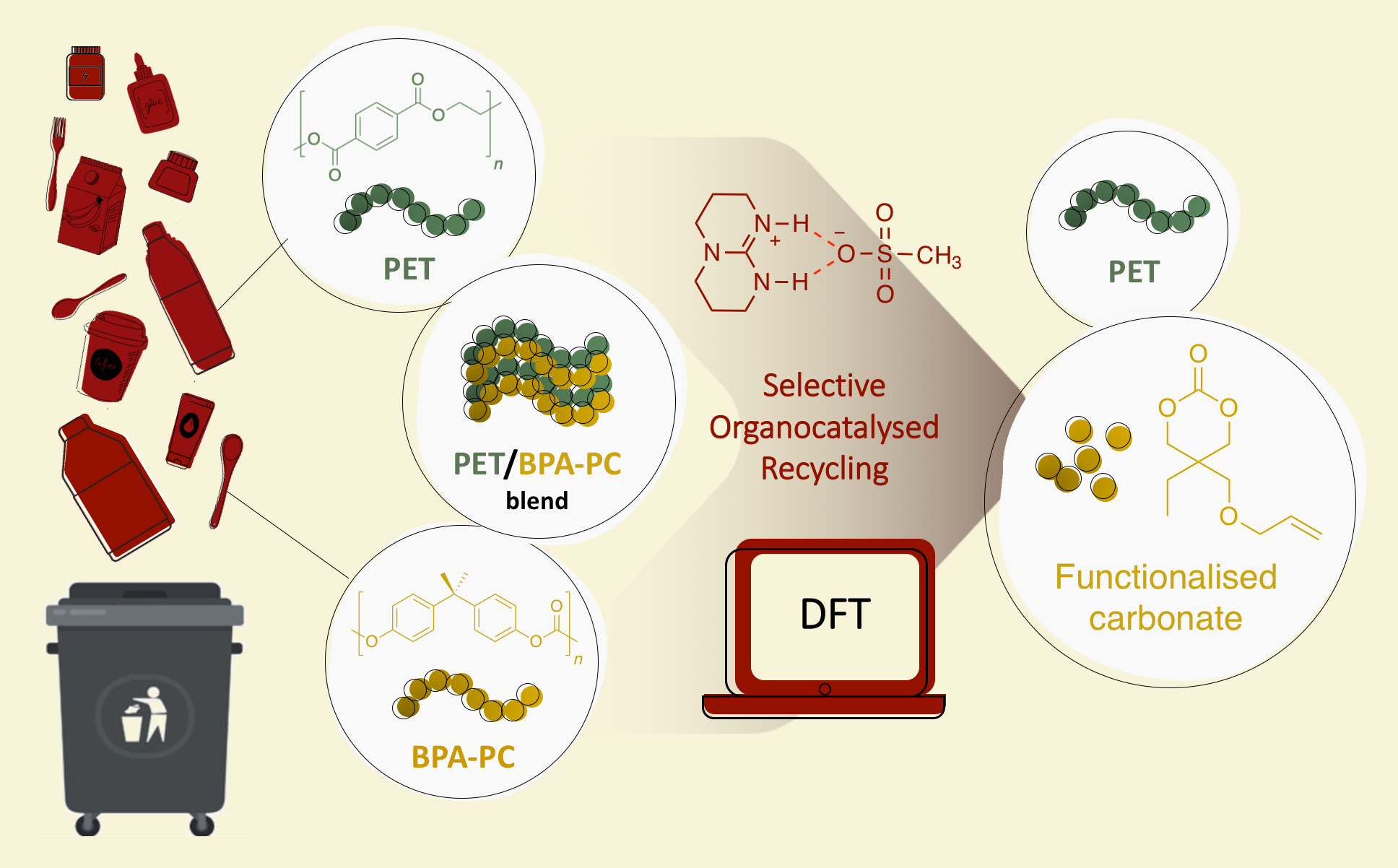Ways to reduce the plastic pollution problem: Selective chemical upcycling of mixed plastics

The volume of plastic waste accumulating is staggering with over 90% of generated plastic ending up in a landfill, incinerator, or ocean. This devastating destination of used plastics is the subject of intense debate, particularly in Europe, which has set an ambitious target of recycling 50% of postconsumer plastics (55% in the case of packaging) by 2030.
These goals drive all of us to innovate by developing innovative solutions quickly. Among them, chemical recycling is making important progress.
In one of our recent publication we developed a selective and sequential depolymerisation route of two routine polymers: PET and Bisphenol A-based polycarbonate (BPA-PC), both very common commodity thermoplastic, respectively representing 30 and 6 million tons produced in 2017.
Using a thermally stable and recyclable organocatalyst we selectively and sequentially recycled both plastics obtaining, not only the starting monomers, but also high added-value cyclic carbonates via a simple solvent-free and chemoselective depolymerisation reaction.
This methodology demonstrates that catalytic depolymerisation offers the opportunity to obtain the initial monomers, for repolymerisation into a new virgin-like thermoplastic but also presents plastic waste as a “greener” alternative feedstock for the synthesis of high added value molecules. From an economical and industrial point of view, the recycling of mixed plastic wastes with a one-pot technology would allow to recover value from waste streams currently impossible to treat.
Our expertise in chemical recycling allow us to offer innovative solutions that guarantee the responsible use, reuse and recycling of these materials to the plastic industry. Do you want to know more about our research and activities? Please, contact us at info@polykey.eu
To access the full text, click here